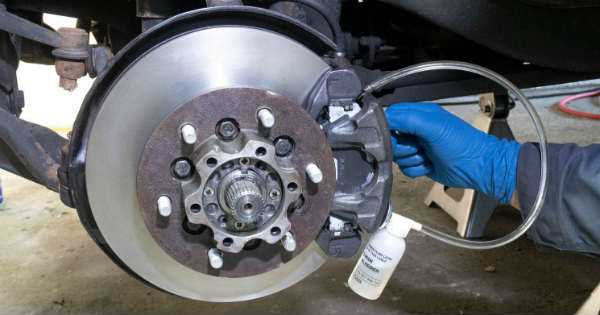Squeaky car brakes can be more than just a nuisance; they can be a signal of potential safety concerns. Addressing this issue promptly is essential for both your peace of mind and the overall health of your vehicle. In this guide, we’ll walk you through the steps to diagnose and fix squeaky brakes, ensuring a safer and quieter driving experience.

Fixing Your Squeaky Breaks
Squeaking or noisy brakes are often caused by factors like dust buildup, worn brake pads, or rust on the rotors. While the noise itself might not always indicate a critical problem, addressing worn brakes promptly is essential to ensure both optimal braking performance and the overall safety of your vehicle.
Diagnose the Source:
The first step in solving any problem is understanding its root cause. Squeaky brakes can stem from various factors, including worn brake pads, dust and debris buildup, or even rust. Take a moment to listen to the sound and gauge when it occurs -- is it only during light braking or when the brakes are engaged firmly? Identifying the pattern can help pinpoint the source.
Clean the Brakes:
A common culprit for squeaky brakes is the accumulation of dust, dirt, and debris on the brake components. Begin by removing the wheel and accessing the brake assembly. Use a brake cleaner spray to carefully clean the brake rotor, caliper, and brake pads. Be cautious not to spray the cleaner on any rubber parts as it can cause damage.
Inspect and Lubricate:
Inspect the brake hardware, including the caliper pins, slides, and shims. Worn-out or damaged hardware can lead to friction and noise. Apply a thin layer of high-temperature brake grease to these parts, avoiding excessive application that could lead to unwanted brake noise.
Replace Brake Pads:
If your brake pads are worn down, they can cause a high-pitched squeal as a wear indicator contacts the rotor. As noted by the car accident attorneys in Austin at Shaw Cowart LLP, worn brakes are one of the most dangerous common maintenance issues a vehicle can have. To replace them, start by loosening the lug nuts, lifting the car securely, and removing the wheel. Unbolt the caliper, slide it off the rotor, and remove the old brake pads. Install the new pads, slide the caliper back, and reassemble the parts. Make sure to follow manufacturer guidelines and torque specifications.
Resurface or Replace Rotors:
Worn or uneven brake rotors can contribute to brake noise. If the rotors are still within their thickness specifications, consider having them resurfaced by a professional. If they’re too thin or damaged, replacement might be necessary. When installing new rotors, follow proper bedding-in procedures to ensure optimal performance and minimal noise.
Check for Rust:
Rust can accumulate on the brake rotors, especially if the vehicle has been stationary for an extended period. Light surface rust usually wears off quickly, but heavy rust can cause persistent squeaking. Gently driving and braking can often remove light rust. For heavy rust, consult a mechanic for advice.
Tips To Take Care Of Your Brakes
Avoid Heavy Braking:
Excessive and abrupt braking can generate extra heat and wear on the brakes, potentially leading to noise. Try to anticipate stops and apply gradual pressure to the brakes. This approach not only reduces noise but also extends the lifespan of your brake components.
Use Quality Brake Pads:
Investing in high-quality brake pads can significantly reduce the likelihood of squeaky brakes. While they may cost more upfront, premium brake pads often contain noise-reducing technologies and materials that can make a substantial difference in your driving experience.
Professional Inspection:
If you’ve attempted the above steps and the squeaking persists, it’s wise to consult a professional mechanic. They have the expertise to diagnose underlying issues that might not be apparent to the untrained eye. Additionally, they can ensure that the brakes are functioning optimally and safely.
Maintain Regular Service:
Prevention is key to avoiding squeaky brakes in the first place. Follow your vehicle’s recommended maintenance schedule. Regular brake inspections and servicing can catch problems early on and prevent more severe issues from arising.
Addressing squeaky car brakes requires a systematic approach that involves diagnosing, cleaning, inspecting, and, if necessary, replacing components. Regular maintenance and attentive driving practices can help keep your brakes operating smoothly and quietly. Remember, a well-maintained braking system not only contributes to a more peaceful drive but also enhances the safety of you, your passengers, and fellow road users.

